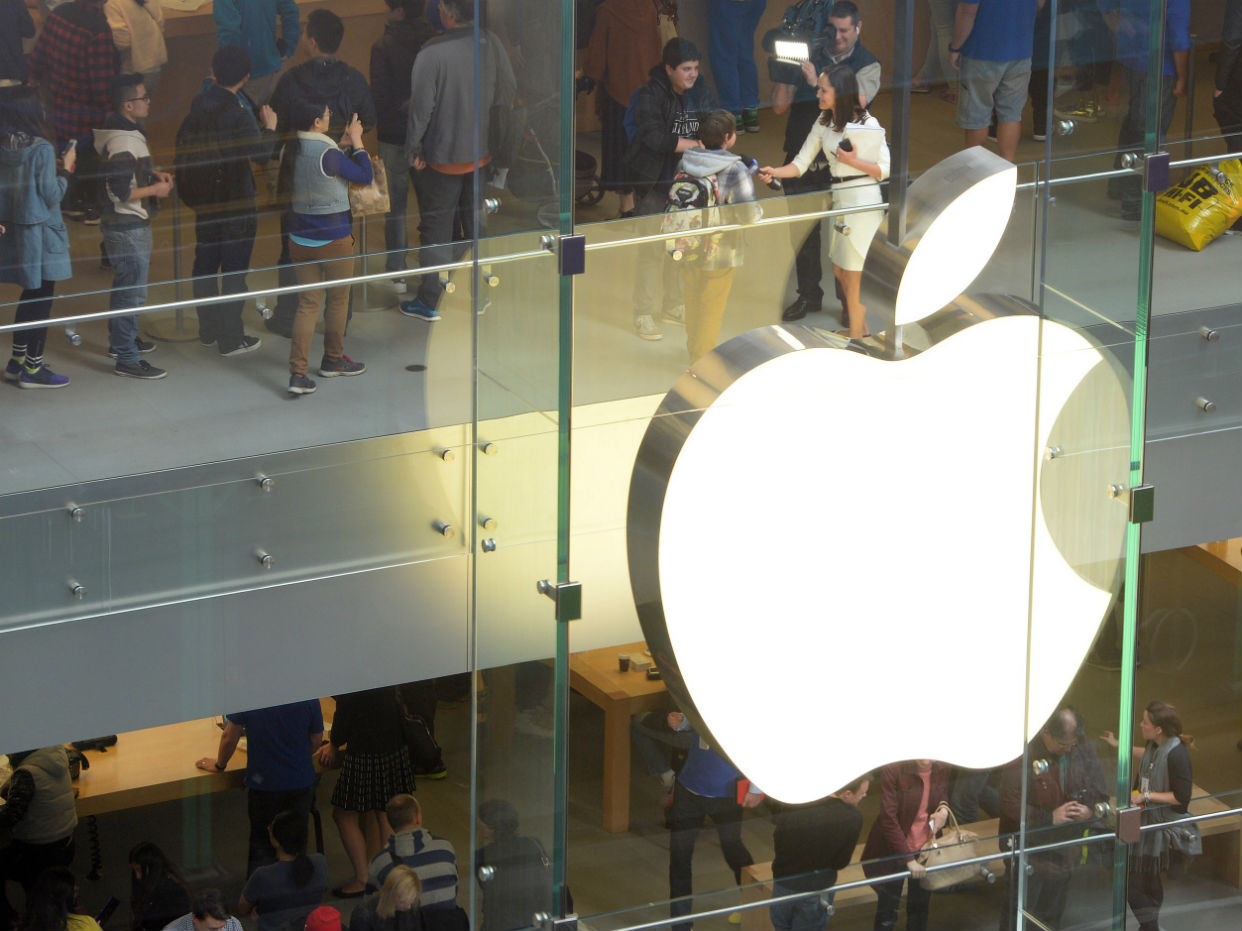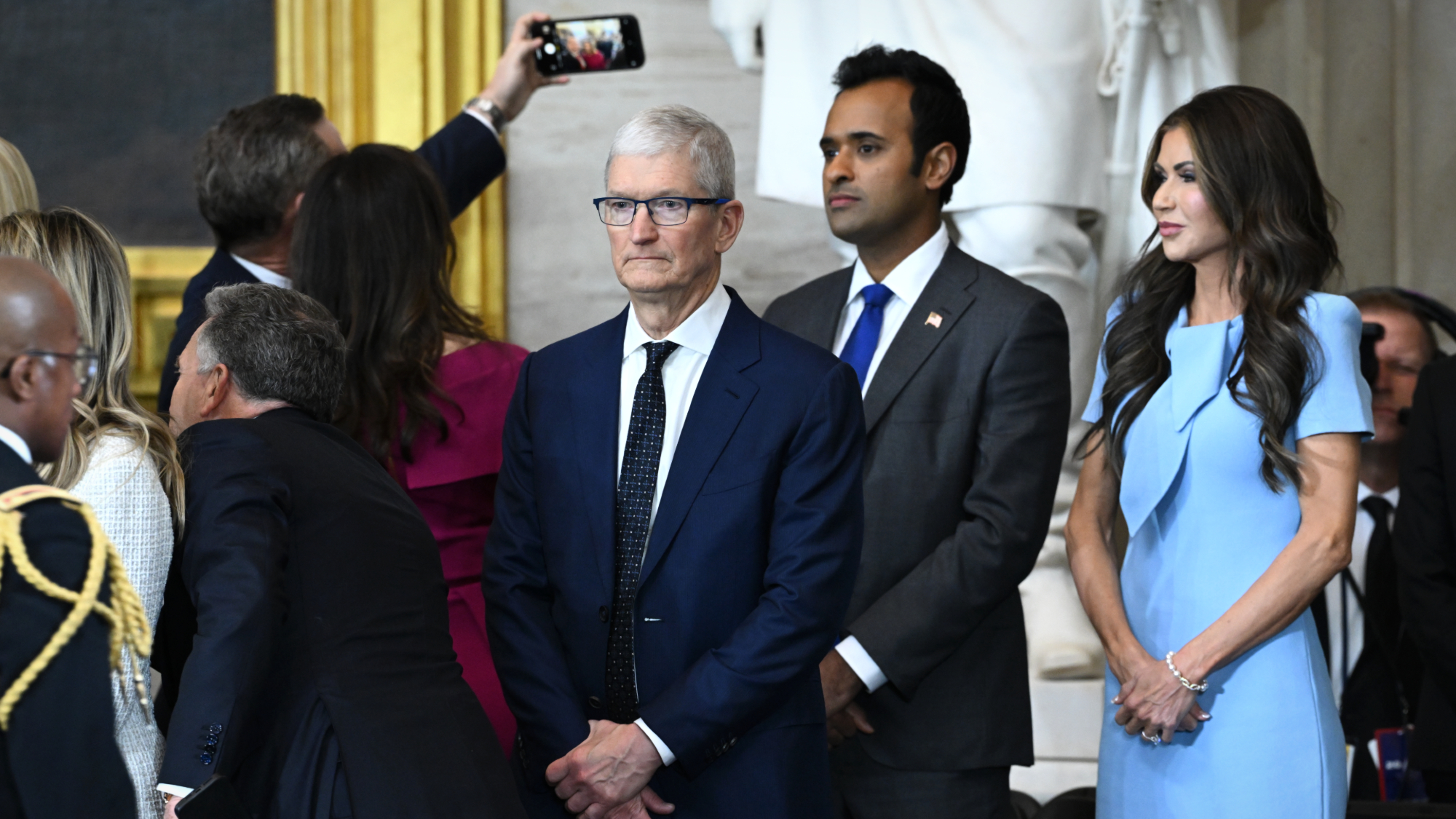New UK surveillance plans a big concern, says Apple
Tech giant claims new surveillance measures risk paralysing global tech sector

A free daily email with the biggest news stories of the day – and the best features from TheWeek.com
You are now subscribed
Your newsletter sign-up was successful
Apple has raised concerns to parliament about the UK's draft Investigatory Powers Bill.
The proposed new law aims to overhaul the government's ability for surveillance and enhance its power to access people's electronic communications.
The bill would, among other things, give the government the ability to view the internet browsing history of all its citizens. But Apple says threats to national security do not justify weakening privacy and putting the data of hundreds of millions of users at risk.
The Week
Escape your echo chamber. Get the facts behind the news, plus analysis from multiple perspectives.

Sign up for The Week's Free Newsletters
From our morning news briefing to a weekly Good News Newsletter, get the best of The Week delivered directly to your inbox.
From our morning news briefing to a weekly Good News Newsletter, get the best of The Week delivered directly to your inbox.
The Home Secretary Theresa May said last month that the proposed powers were needed to fight crime and terror.
Ms May said the bill would provide "some of the strongest protections and safeguards anywhere in the democratic world and an approach that sets new standards for openness, transparency and oversight", reports the Financial Times.
The American company is particularly concerned the bill would weaken digital encryption tools, creating vulnerabilities that will be exploited by sophisticated hackers and government spy agencies alike.
"The creation of backdoors and intercept capabilities would weaken the protections built into Apple products and endanger all our customers," Apple said in an eight-page submission to the parliamentary committee considering the bill. "A key left under the doormat would not just be there for the good guys. The bad guys would find it too."
A free daily email with the biggest news stories of the day – and the best features from TheWeek.com
Bloomberg reports that Apple is also worried about the knock-on effects the passing of the law would have globally. In response to the new rules in the UK, other governments would probably adopt their own new laws, "paralysing multinational corporations under the weight of what could be dozens or hundreds of contradictory country-specific laws," Apple claims.
"Current legislation demands that companies take reasonable steps to provide the contents of communications on production of a warrant, but that has not been interpreted as requiring firms to redesign their systems to make it possible," says the BBC's security correspondent Gordon Corera. But Apple, along with other technology leaders, appears to believe that the new bill could still be interpreted by the government in order to force the creation of a so-called "backdoor" into all of a company's products.
Corera believes this ambiguity in the new law is the real concern for the technology giant. "Previous laws, such as the 1984 Telecoms Act, were stretched and expanded in secret to carry out acts that the public knew little about," he says.
"The stated aim of the current bill is to improve transparency and accountability. Apple may well be hoping that it can force the government to clarify what is really intended and possible."
-
 Political cartoons for February 22
Political cartoons for February 22Cartoons Sunday’s political cartoons include Black history month, bloodsuckers, and more
-
 The mystery of flight MH370
The mystery of flight MH370The Explainer In 2014, the passenger plane vanished without trace. Twelve years on, a new operation is under way to find the wreckage of the doomed airliner
-
 5 royally funny cartoons about the former prince Andrew’s arrest
5 royally funny cartoons about the former prince Andrew’s arrestCartoons Artists take on falling from grace, kingly manners, and more
-
 Will AI kill the smartphone?
Will AI kill the smartphone?In The Spotlight OpenAI and Meta want to unseat the ‘Lennon and McCartney’ of the gadget era
-
 Is Apple’s Tim Cook about to retire?
Is Apple’s Tim Cook about to retire?Today's Big Question A departure could come early next year
-
 iPhone Air: Thinness comes at a high price
iPhone Air: Thinness comes at a high priceFeature Apple’s new iPhone is its thinnest yet but is it worth the higher price and weaker battery life?
-
 Is Apple breaking up with Google?
Is Apple breaking up with Google?Today's Big Question Google is the default search engine in the Safari browser. The emergence of artificial intelligence could change that.
-
 Why won't Apple make iPhones in America?
Why won't Apple make iPhones in America?Today's Big Question Trump offers a reprieve on tariffs, for now
-
 Not there yet: The frustrations of the pocket AI
Not there yet: The frustrations of the pocket AIFeature Apple rushes to roll out its ‘Apple Intelligence’ features but fails to deliver on promises
-
 Space-age living: The race for robot servants
Space-age living: The race for robot servantsFeature Meta and Apple compete to bring humanoid robots to market
-
 Apple pledges $500B in US spending over 4 years
Apple pledges $500B in US spending over 4 yearsSpeed Read This is a win for Trump, who has pushed to move manufacturing back to the US